Vision
The Department of Information Technology aims to produce globally competent graduates, skilled intellectual professionals, and a successful entrepreneur in the field of computer science and Information Technology to meet the current challenges in the fast-growing IT industry.
Mission
- Provide strong theoretical and practical knowledge to the students in the computer science discipline.
- To equip our students to attain the skill set Imperative to harness the opportunities present in this dynamic Environment.
- Provide technical & skill-based quality training to students in the field of Information technology
- Empowering the Youth in rural communities with computer knowledge
- Inculcate knowledge about Socio-economic duties & responsibilities and human & ethical values to become an optimistic global citizen and a life-long learner.
- Provide environmental education to build knowledge on environmental issues and also to take necessary actions to keep our environment healthy and sustainable for the future.
Programme Educational Objectives (PEOs)
PROGRAM EDUCATIONAL OBJECTIVES (PEO)
PEO1: Emerge as globally competent computer professionals in multidisciplinary domains.
PEO2: Excel as a socially committed individual having an ethical value and empathy for the needs of society
PEO3: Become an entrepreneur possessing a leadership skill that can provide solutions and develop software products.
PEO4: Involve in lifelong learning to adapt the latest technologies and advancements in the emerging areas of computer applications.
PEO5: Provide technical & skill-based quality training to the students in the field of Information technology.
Programme Outcomes (POs) & Programme Specific Outcomes(PSOs)
PROGRAM OUTCOME (PO)
PO1: Critical Thinking: Apply knowledge of Computer Science to identify, and analyze, problems and to provide effective solutions in the area of Computing.
PO2: Computing Skills and Ethics: Analyze a problem, and identify and define the computing requirements appropriate to its solution.
PO3: Analytical skill: Ability to design, develop algorithms, and provide software solutions to cater the industrial needs.
PO4: Modern Tool Usage: Use current techniques, skills, and tools necessary for computing practices
PO5: Employability Skills: Inculcate skills to excel in the fields of Information Technology and its Enabled services, Government and Private sectors, Teaching and Research.
PO6: Ethics: Insists ethical responsibilities, and human and professional values, and makes their contribution to society.
PO7: Self-Directed and Life-long Learning: Engaged in lifelong learning to equip them to the changing environment and be prepared to take up mastering programs.
PO8: Individual and team work: Function effectively as an individual, and as a member or a leader in diverse team and multidisciplinary settings.
PO9: Environment and sustainability: Understand the impact of professional engineering solutions in societal and environmental contexts, and demonstrate the knowledge of, and need for sustainable development.
PO10: Project management and finance: Demonstrate knowledge and understanding of the problem and management principles and apply
PO11: Conduct investigations of complex problems: Use research-based knowledge and research methods including design of experiments, analysis and interpretation of data
PO12: Design/development of solutions: Design solutions for complex problems to meet the specified needs, considering the public health and safety cultural, societal, and environmental.
PROGRAM SPECIFIC OUTCOME (PSO)
PSO1: Understand the basic concepts of computers.
PSO2: An ability to apply knowledge of mathematics, computer science, and management in practice.
PSO3: An ability to enhance not only a comprehensive understanding of the theory but its application too in diverse field
PSO4: Analyze and apply the latest technologies to solve problems in the areas of computer applications.
PSO5: Apply technical and professional skills to excel in business.
PSO6: Able to build software applications and tools through quantitative and qualitative techniques
PSO7: Able to design a computing system to meet desired needs within realistic constraints such as safety, security, and applicability in multidisciplinary teams with a positive attitude.
PSO8: Develop practical skills to provide solutions to industry, society, and business
PSO9: Able to communicate effectively in both verbal and written form.
Curriculum & Syllabus
CURRICULUM & SYLLABUS
MINIMUM CREDITS TO BE EARNED: 140
| Category | Course | Hours/Week | Credits | ||
|---|---|---|---|---|---|
| Lecture | Tutorial | Practical | |||
| CORE | Problem Solving and Objects Oriented Programming | 4 | 0 | 0 | 4 |
| CORE | Digital Logic Fundamentals | 4 | 0 | 0 | 4 |
| CORE | Mathematics I | 0 | 0 | 6 | 2 |
| CORE | Pratical -I Programming in C++ | 0 | 0 | 6 | 2 |
| AECC | Ability Enhancement Complusory Courses - I | 5 | 0 | 0 | 5 |
| AECC | English Paper - I | 5 | 0 | 0 | 5 |
| Total | 22 | 0 | 6 | 24 | |
Eligibility Criteria
| Program | Program Duration (Year) | Eligibility | Criteria for Merit |
|---|---|---|---|
| B.C.A. | 3 Years (6 Semesters) | "Pass in (10+2) or equivalent with Maths/ Computer Science/ Computer Applications /Business Maths/ Statistics/ Informatics Practices/Information Technology/Artificial Intelligence Lateral Entry: Pass in Diploma in Computer Science/ ECE/ Visual Communication/ EEE/ Information Technology/ Computer Technology" | Merit based on the percentage of marks secured in the qualifying examination |
Career Prospects
CAREER PROSPECTS
- Software Developer
- Software Publisher
- Systems Administrator
- Chief Information Officer
- Computer Programmer
- Computer Support Service Specialist
- Computer Scientist
- Computer Systems Analyst
- Database Administration
- Information Systems Manager
Alumni Testimonials

I completed my BCA degree from Vels University. The department taught the appropriate information needed for the then industry needs beyond the syllabus and I got selected in V WIN HOMES.
Jerson Delberk.M (BCA), 2106-2019
Building Constructor (supervisor), V WIN HOMES
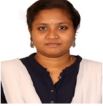
I would proudly say that I am an alumni of Vels University, Dept of BCA & IT. I got placed in Shriram Chits India pvt Ltd I received an excellent support from the faculties. They simply helped me to prove that, Real Talent is not just getting marks but to improve our skills and knowledge. Curriculum is designed in such a way that it fills the gap between the college and corporate. Simply it’s a best institution for the students to develop their career path.
Sujitha.K (BCA), 2106-2019
Software engineer, Shriram Chits India pvt. Ltd.

I completed my BCA degree from VISTAS. The management provided us the necessary infrastructure and placement training. The department taught the appropriate information needed for the then industry needs beyond the syllabus and I got selected in Tech Mahindra. I thank Vels University and my staffs.
Subash Chandra Bose . S (BCA), 2106-2019
Associate technical support, Tech Mahindra

I completed my BCA degree from Vels University. The management provided us necessary infrastructure and placement training. The department taught the appropriate information needed for the then industry needs beyond the syllabus and I got selected in Infosys. I thank Vels University and my staffs.
Bhuvanesh wari Meena .V (BCA), 2018-2021
Operations Executive, Infosys Limited

I completed my BCA degree from VISTAS. The management provided us the necessary infrastructure and placement training. The department taught the appropriate information needed for the then industry needs beyond the syllabus and I got selected in Neel-Tech International Pvt Ltd. I thank Vels University and my staffs.
Pavithra K (BCA), 2018-2021
Customer Support Representative, Neel-Tech International Pvt Ltd
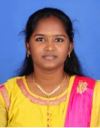
I completed my BCA degree from Vels University. The management provided us the necessary infrastructure and
placement training. The department taught the appropriate information needed for the then industry needs beyond the syllabus and I got selected in Door Sabha Nigam Ltd.,. I thank Vels University and my staffs.
Pelsia (BCA), 2106-2019
Conference operations executive, Door Sabha Nigam Ltd.,
Fee Structure
| Tuition Fee 2024 - 2025 (Per Sem) | Other Fee (Per Sem) | Total Fee 2024 - 2025 (Per Sem) |
|---|---|---|
| 20,000 | 19,000 | 39,000 |
Faculty of the Department
| Sl. No. | Name of the Faculty | Designation | Educational Qualification | Area of Specialization | Experience in Years | Vidwan ID | Photos |
|---|---|---|---|---|---|---|---|
| 1 | Dr.Sujatha.P | Professor and Head | M.Sc.,M.Phil, SET, Ph.D | Image Processing, Machine Learning, Cloud Coomputing & CNN | 25 Years | 233984 | 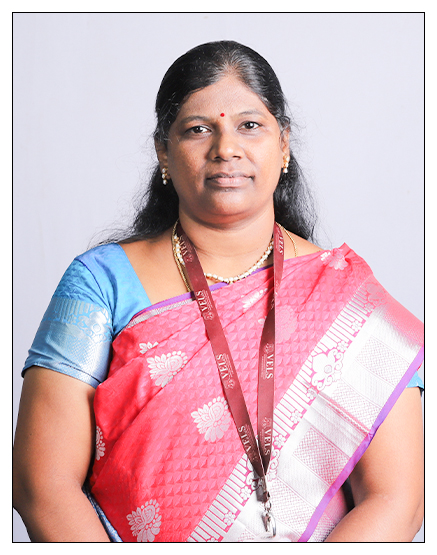 |
| 2 | Dr.Kamalakannan.T | Professor | M.C.A. M.Phil., SET, Ph.D | Data Mining | 25 years 5 months | 250928 | 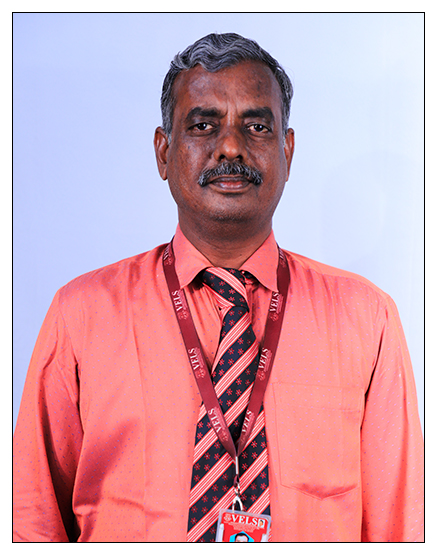 |
| 3 | Dr.Kalpana.Y | Professor | M.C.A, M.Phil., Ph.D | Neural networks, image Processing, cloud computing | 25 years 6 months | 250134 | 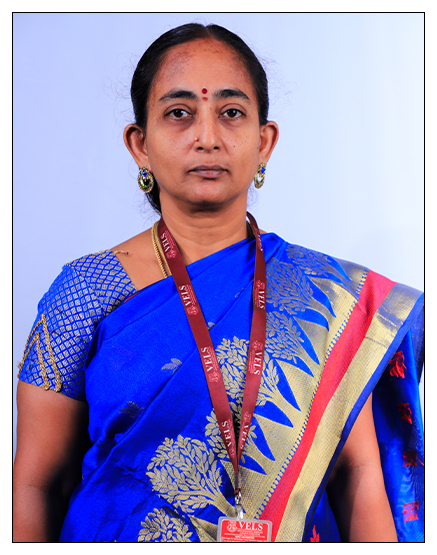 |
| 4 | Dr.Rohini.K | Professor | MCA., M.Phil.,Ph.D | Data Anlytics, Parallel processing system, Networking, Internet of Things & Machine Learning | 17 years 6 months | 290690 | 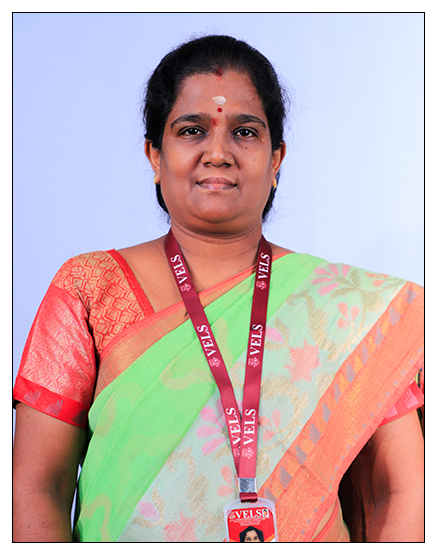 |
| 5 | Dr.Booba.B | Professor | MCA, M.Phil,Ph.D | Grid Computing, Distributed Computing and Parallel Computing, Networking, Video Processing, Big Data Analytics, Cloud Computing, Data Mining, Internet of Things & Machine Learning | 25 years 2 months | 232629 | 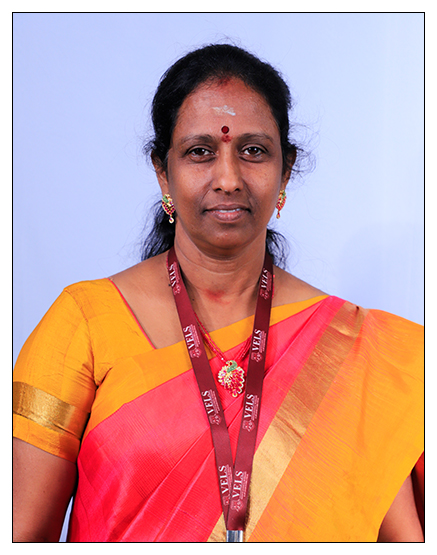 |
| 6 | Dr.Shanthi.C | Associate Professor | M.C.A. M.Phil., Ph.D | Mobile Computing | 18 years 6 months | 233836 | 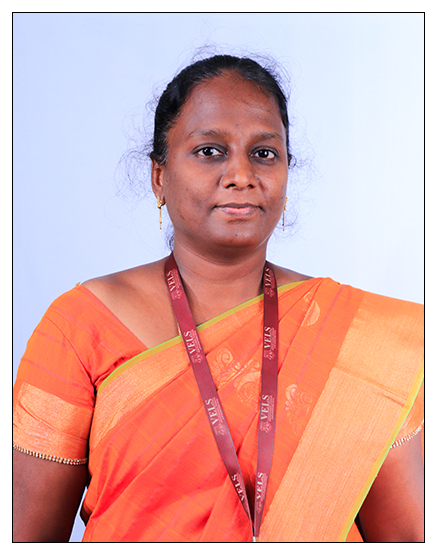 |
| 7 | Dr.Devi Radhakrishnan | Associate Professor | M.C.A, M.Phil., SET, NET., Ph.D | Image Processing , Data Mining & Cloud Computing | 17 years 6 months | 232625 | 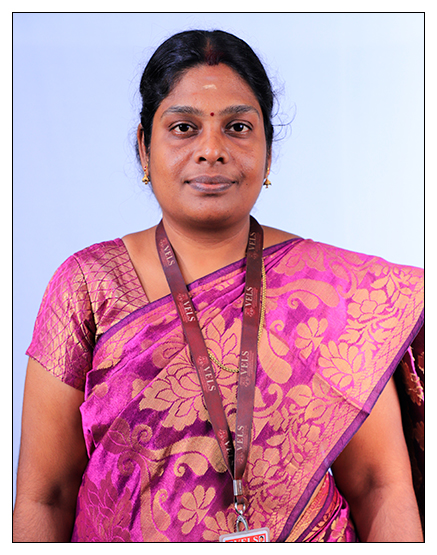 |
| 8 | Dr.Kasturi.K | Associate Professor | M.Sc., MCA.,M.Phil., Ph.D | Data Mining , Big Data Analytics & Machine Learning | 17 years 6 months | 250831 | 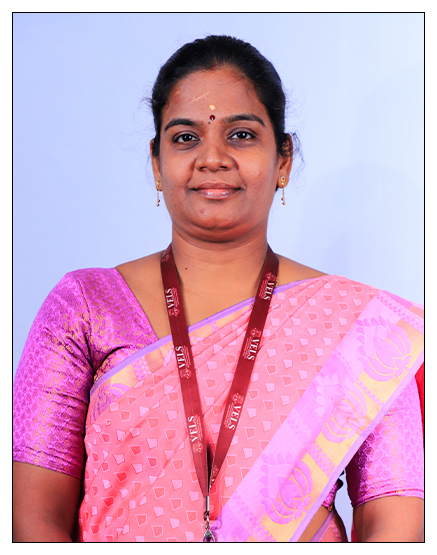 |
| 9 | Dr.Jebathangam.J | Associate Professor | M.C.A, M.Phil., Ph.D | Image Processing & Machine Learning | 16 years3 months | 250023 | 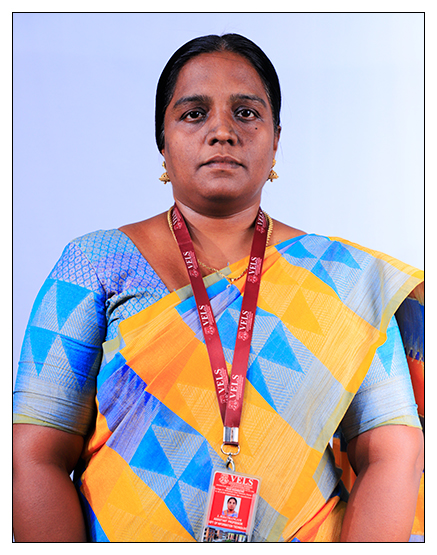 |
| 10 | Dr.Kamalakkannan.S | Associate Professor | M.Sc., M.Phil., Ph.D | Data Mining & Big Data | 19 years 6 months | 232622 |  |
| 11 | Dr.Dharmarajan.K | Associate Professor | M.Sc., M.Phil., Ph.D | Data Science ML and AI , Big Data and IoT | 18 years 2 months | 232572 | 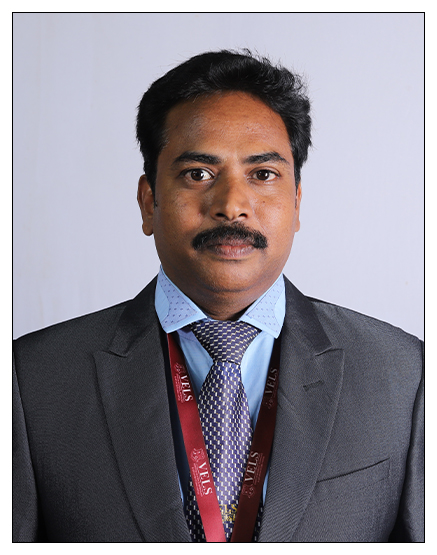 |
| 12 | Dr.Sharmila.K | Associate Professor | M.Sc., M.Phil., Ph.D | Big Data & Machine Learning | 14 years 4 months | 233823 | 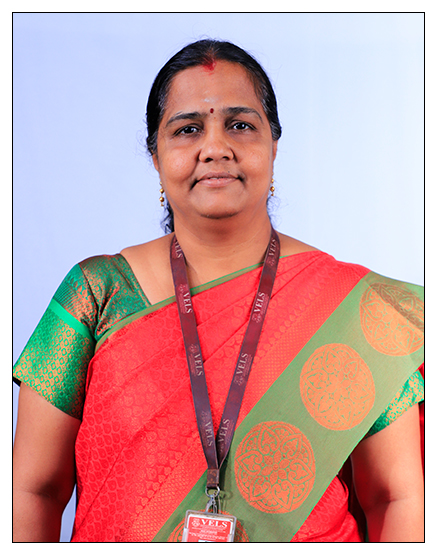 |
| 13 | Dr.Jeyalaksshmi.S | Associate Professor | MCA, M.Phil, Ph.D | Image Processing, Data Mining & Internet of Things | 20 years 2 months | 116757 | 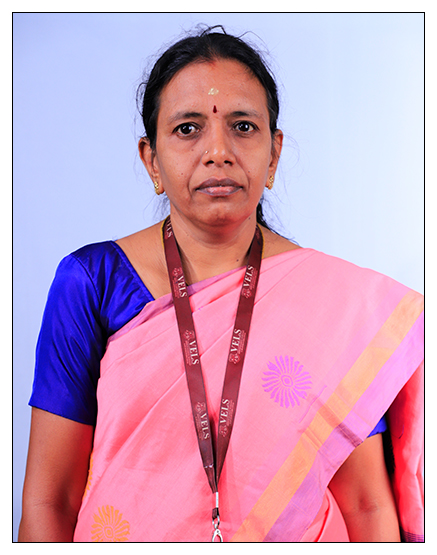 |
| 14 | Dr.Bagavathi Lakshmi.R | Associate Professor | MCA.,M.Phil., Ph.D | Data Mining & Internet of Things | 16 years 2 months | 472626 | - |
| 15 | Dr.Vidhya.A | Assistant Professor | MCA, M.Phil.,Ph.D | Big Data Analytics , Machine Learning & Deep Learning | 19 years 2 months | 250787 | 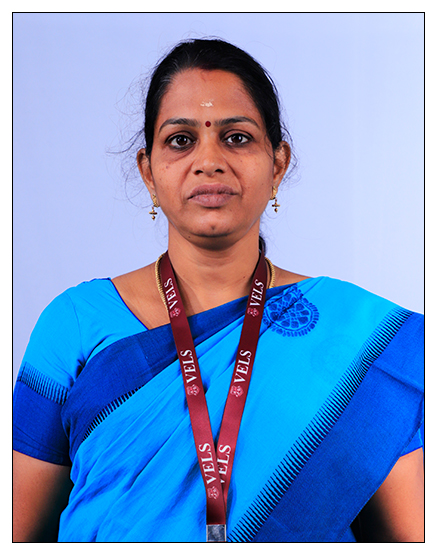 |
| 16 | Dr.Sathya.S | Assistant Professor | M.Sc., M.Phil., Ph.D | ChemInformatics , Data Mining, machine Learning , IoT,Image Processing | 15 years 2 months | 250807 | 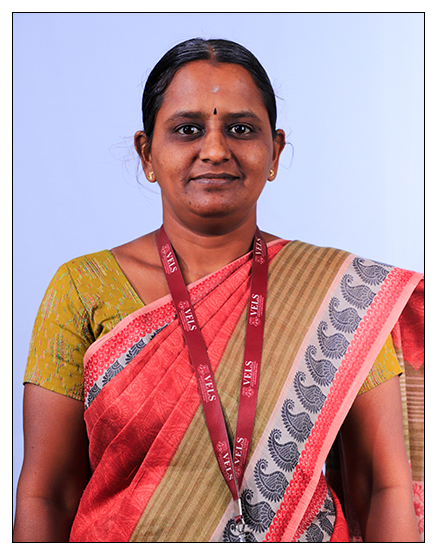 |
| 17 | Dr.Piramu Preethika.SK. | Assistant Professor | MCA, B.Ed.,M.Phil, Ph.D | Mobile Computing,IoT,data analytics, Sentiment analysis, Machine Learning & Cloud Computing | 9 Years 11 Months | 250813 | 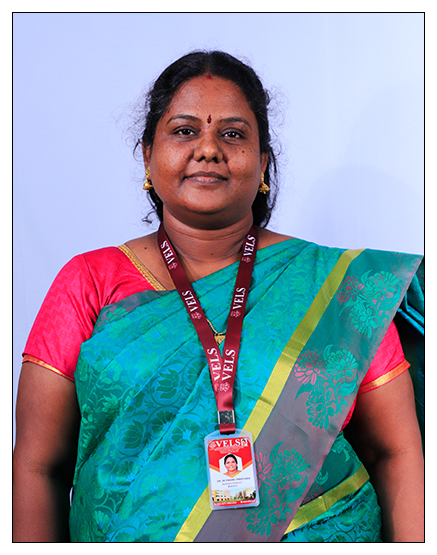 |
| 18 | Ms.Arockiya Selvi.S | Assistant Professor | MCA, M.Phil,(Ph.D) | Data Mining & Big Data | 11 years | 251505 | 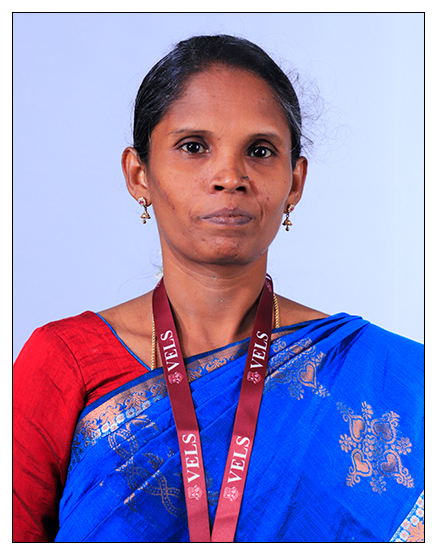 |
| 19 | Dr.Shalini.R | Assistant Professor | M.Sc., M.Phil., Ph.D., | Data mining,Machine Learning | 11 years 06 months | 249935 | 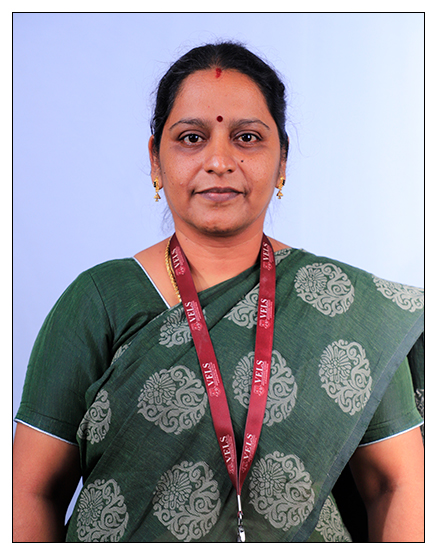 |
| 20 | Dr.Raghavendran.V | Assistant Professor | MCA., MBA.,M.Phil., Ph.D.,PDF | E-commerce Security and AIML& DL, IoT,Big data, Data Mining and Warehousing | 22 years 6 Months | 249741 | 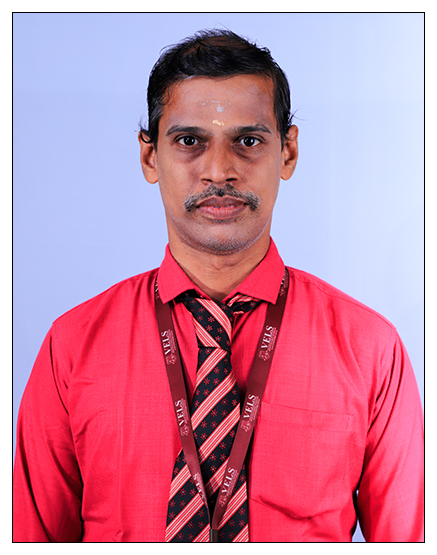 |
| 21 | Dr.Hemamalini.U | Assistant Professor | M.Sc.,M.Phil.,Ph.D | Sentiment Analysis | 17 years 6 months | 315150 | 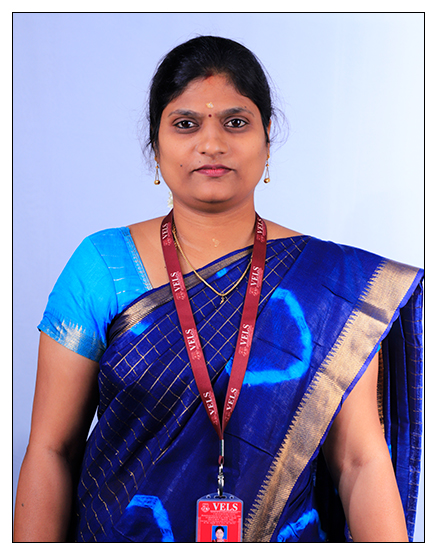 |
| 22 | Dr.Divya.V | Assistant Professor | M.Sc, M.Phil, Ph.D | Networks | 8 years 7 months | 314873 | 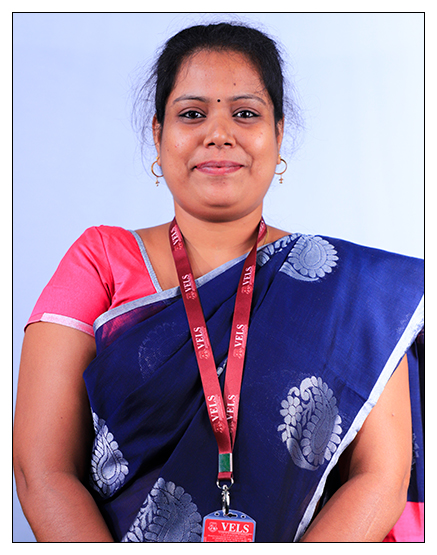 |
| 23 | Dr.Bharathi.A | Assistant Professor | M.Sc,M.Phil, Ph.D | Image Processing, Machine Learning | 7 years 3 months | 315143 | 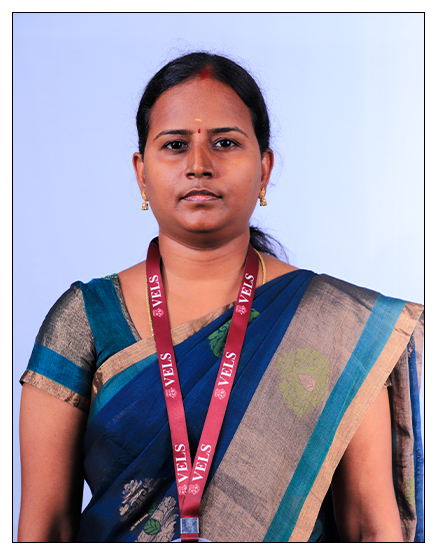 |
| 24 | Dr.Yogeshwari.M | Assistant Professor | M.Sc,M.Phil,Ph.D | Image Processing,Machine Learning | 7 years 2 months | 393508 | 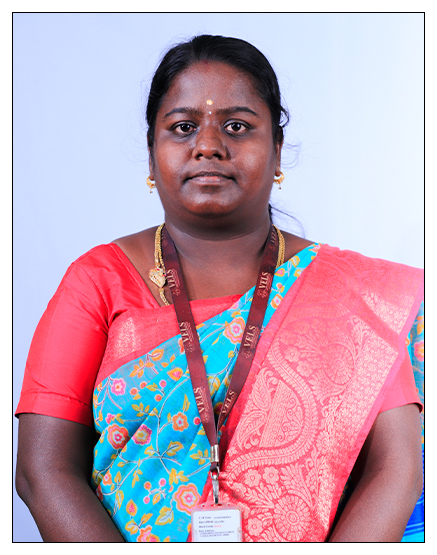 |
| 25 | Dr.Rani.S | Assistant Professor | M.Sc, M.Phil, Ph.D | Image Processing, Cloud Computing | 9 years | 472508 | 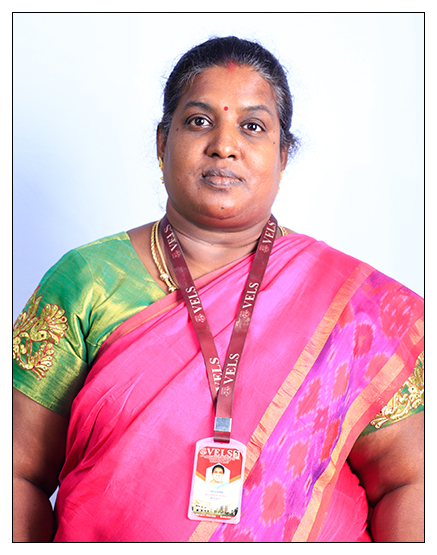 |
| 26 | Dr..Shyamala Devi.N | Assistant Professor | MCA, M.Phil,Ph.D | Natural Language Processing,Text Mining | 13 years | 470942 | 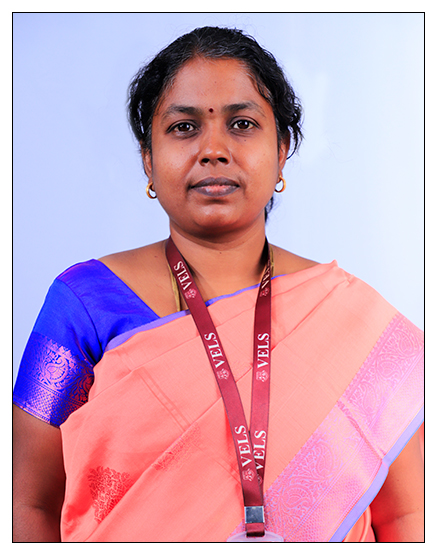 |
| 27 | Dr.Sangeetha Radhakrishnan | Assistant Professor | MCA., Ph.D | Distributed Database,Cryptography,Security | 1 year | 322257 | - |
| 28 | Dr.Ramesh.L | Assistant Professor | M.Sc.,B.Ed.,M.Phil., Ph.D | Data Mining, Image Processing , Big data, Artificial Intelligence,Machine Learning, | 6 years 2 months | 416502 | - |
| 29 | Dr.Sakthivanitha.M | Assistant Professor | M.Sc (CS)., M.Phil., Ph.D., | Data Mining, IoT, Network security | 5 years 6 months | 474749 | - |
| 30 | Dr.Anbarasi.C | Assistant Professor | M.C.A.,M.Phil,Ph.D | Data Mining | 18 years 6 months | 472564 | - |
| 31 | Dr.Grace Hannah.J | Assistant Professor | M.Sc(CS)., M.Phil (CS)., Ph.D (CS) | Image Processing, Data Mining, Machine Learning | 7 years 2 months | 432211 | - |
| 32 | Ms.Jayashree.S | Assistant Professor | M.Sc.,M.Phil | Image processing & Machine learning | 2 years1 month | 472680 | - |
| 33 | Dr.Balaji Kannan | Assistant Professor | MCA., M.Phil. M.E., MBA,DLL.,Ph.D | Cloud Computing, Cloud data security, Network security, IOT, Bigdata. | 13 years | 474352 | - |
 CHAT WITH A STUDENT
CHAT WITH A STUDENT